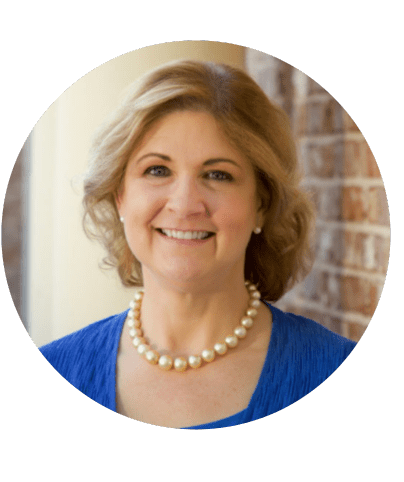The Link Between “The Talk” and Kid’s Safety: Discussing Sex and Bodily Autonomy with Our Children

By Kendall Wolz
Mental Health and Wellness Manager at Mosaic Georgia

If I were to sit down with a random group of adults and ask the question, “What happened when you had THE TALK” with your parents or caregivers, many in the group would likely recoil and cringe with discomfort. Most of us probably have stories filled with awkwardness, distress, and anxiety. Parents likely had a similar reaction when they had the talk with their own children. On one hand, sexualized material infiltrates many aspects of our everyday lives with television shows, movies, advertisements, etc. On the other hand, the topic of sex is still taboo for many to talk about comfortably.
It is vital that parents and caregivers begin talking to their children about their bodies and sex early and in an age-appropriate manner.
Equipping children with accurate, scientific information about their bodies empowers them to respond appropriately to situations that may be harmful.
How the Danger Shows Up
There is a story about a child attempting to tell her teacher she was being abused at home. The child had been taught that her vulva was called a cookie. She arrived at school one day and told her teacher that her grandfather had licked her cookie. The teacher readily replied, ‘you should go get another cookie when that happens’. No one knew this child was attempting to tell the teacher that her grandfather had licked her vulva. As a result, the abuse continued until the child could disclose, with more accuracy, the abuse she had experienced. This is an excellent example of the dangers of teaching children incorrect names for their body parts.
From the ages of 8-13, I did not have the language to describe the abuse I endured. I did not know the boundaries of my body extended also to the father figure in my life – not just strangers, classmates, and non-family members. I was not familiar with what constituted abuse. I did not know that there was something I needed to keep telling until I was believed.
I did not know it was wrong.
It is imperative that we provide kids with adequate information so that they can recognize abusive behaviors.
Being Okay with the Discomfort
Toddlers are naturally curious about the differences in physical bodies. And this may cause some uncomfortable conversations at the dinner table. It’s important to remember that toddlers do not feel shame about their bodies until adults in their life unknowingly respond in ways that create embarrassment or guilt.
Below are some helpful tips and resources to help empower children with an understanding of their bodies.
Stay Calm and Neutral
When my brother was a toddler, he was notorious for pulling his pants down and peeing outside. This is common with young children, and it is understandable that it might ‘freak parents out’, especially if company is over. A parent may respond by frantically telling the child to pull their pants up and to refrain from doing that again while friends are over. The child may be anxiously instructed to only pee in the bathroom with the door shut. While the information being conveyed is necessary and reasonable, the way it is communicated may unknowingly prompt shame, embarrassment and insecurity within the child. A healthy response would be to calmly approach the child and matter-of-factly state that when friends are over, we only pee in the bathroom. This mild, neutral tone does not create a sense of alarm. When a child feels alarm, they have difficulty listening to what we say and are more likely to only absorb the anxious energy put out by the parent.
Eyes, Nose, Elbow, Arm, Penis, Vagina: They Are All Body Parts
“Every single part of our body has an important job. All parts of our body are good. There are some parts of our body that we keep private.” This should be the focus of our conversations with children. As they grow and ask questions, our answers about the jobs of different body parts will expand and have more depth. We might even have to break out Google when a child asks about the job of the appendix. We can teach kids factually about their bodies. We do not need to assign a label of good or bad; however, we may assign a category of private.
Privacy
It is important that we do teach children about privacy. When we are in public places, at a friend’s house, or even in places like the living room and kitchen, certain parts of the body should be covered. Many people explain private parts by what is covered by a swimsuit; for others, private parts may be extended. You will often have to remind children of what is private, but that should not be done in a shameful tone. It can simply be a reminder.
A Helping Hand
It’s a complex topic and the layers run deep especially because our children’s safety is at the forefront. Fortunately, there are many resources that can help us along.
Here are some excellent tips for having healthy conversations with children about sex.
Lots of helpful advice can be found on the Birds & Bees Instagram account.
Kendall Wolz heads up the Mental Health and Wellness team that provides individual, family, and group therapy to those seeking care at Mosaic Georgia. As a survivor herself, she has a unique insight into the challenges of living with past trauma, how it impacts lives daily, and what the process of healing truly looks like. Her personal website, Brave Girl, Speak unpacks some of the complex issues that come along with being a survivor of sexual violence. Visit Kendall’s site to read more about her personal journey healing from trauma and peeling the layers to reclaim her true self.







